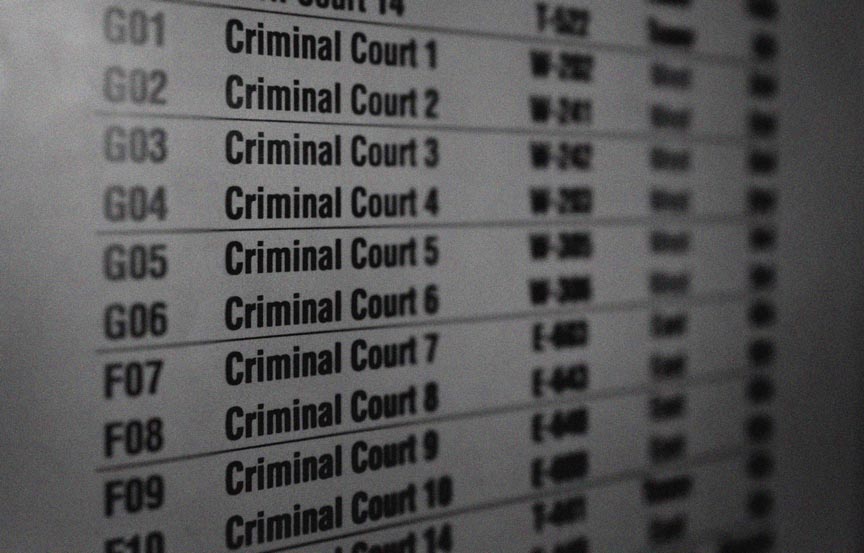What Happens When I’m Arrested in Indiana?
A formal arrest is generally followed by a trip to the police station or jail, a booking procedure which results in a mug shot and fingerprinting and (in some counties) the assignment of a number attached to your fingerprints (often this is referred to as your “Gallery Number”). The next step is an initial hearing where the court tells you what your charges are, sets a preliminary bail amount, advises of your rights and deadlines, and sets your case for another hearing date. In theory, your initial hearing should take place within 32 hours of your arrest. In practice, Indiana can ask for 72 hour continuances and as long as a bond has been set, this request is automatically granted. Often times, a judge may have reviewed your probable cause affidavit and has already set a bond amount before you arrive in court. Certain misdemeanors may be charged with a summons, and not a formal “arrest”. You are still booked the same way and are considered to have been arrested in Indiana.
Can I Be Released?
If you are a juvenile, you will have a detention hearing to determine whether you will stay in custody pending the resolution of your case. If you are an adult, you are entitled to a reasonable bail unless you are charged with murder, have a hold from another Indiana jurisdiction, are on probation, or are on parole. Some jurisdictions require cash bonds, others allow the use of Bondsmen (or Surety Agents) who post 10% of the Bond. Some counties will allow you to post 10%. If you have other criminal cases pending in other counties or states, or are on deferred prosecution, probation, parole, then this new arrest can trigger a bond forfeit in those other counties, or a hold for probation or parole. If you are not a legal resident of the United States and you are arrested, there is a very good chance that U.S. Immigration and Customs Enforcement will be contacted, and will place a hold on you. In murder cases, you are entitled to a “Motion to Let Bail”, otherwise known as a “Writ of Habeas Corpus”. It is the one and only time that you can get a free look at all the evidence the case has in a murder case. I have been successful in achieving a bond on a murder client, as a result of a Habeas Corpus Bond Hearing. As a result of facts we unearthed during that hearing, the client was later acquitted.
What Happens After my Initial Hearing?
At your Initial hearing in Indiana, the Judge will read the probable cause affidavit (in some counties there will be a hearing instead) and will determine if sufficient grounds are established for your arrest. The dates you are given are important. The Omnibus date is a date the court uses to set notices of certain defenses, discovery deadlines, and other technical matters. Many times a court will set an interim hearing called a “pretrial conference” or set the matter for “further proceedings”. In each case, these are merely different names for dates that are not trial dates, and are only dates designed to see if discovery is proceeding or if there has been any progress in the case. Some Indiana courts dispense with pretrials and only set cases for trial. If that is the case in your court, and you are charged with a misdemeanor, you will lose your right to trial by jury unless you request that right ten days prior to your first trial setting.
This is one reason you should retain counsel as soon as possible in Indiana. If you have been charged with a misdemeanor, you can sometimes waive your appearance at your initial hearing and have your lawyer file a motion instead. It all depends on the judge in the Court.
If you cannot reach an agreement with the prosecuting attorney in your case, then you can either plead guilty to the charges as filed, have a trial where the judge determines guilt or innocence, or have a jury trial to determine the facts.


